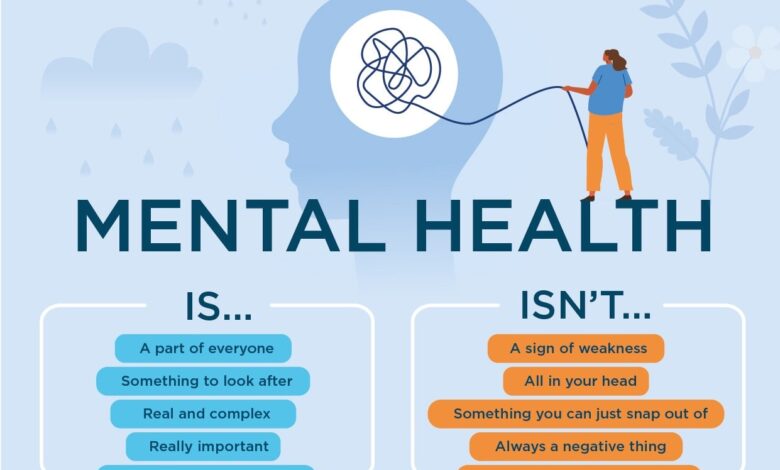9 Mindfulness Practices for Daily Mental Health Boosts

In our busy modern lives, it’s all too easy to go through daily motions mindlessly, without truly appreciating the present moment. This mindless operation can take a toll on mental health over time, leading to increased stress, anxiety, and depression. The good news? Research shows that trying to be more mindful in our daily actions can do wonders for mental health and well-being. Mindfulness practices help ground us in the here and now. They enable greater control of emotions, focus, self-awareness, and inner peace.
In this guide, we will explore 9 simple yet powerful mindfulness practices. They can be added to daily routines for better mental health. You will learn techniques to enhance mindfulness during activities. These include work, exercise, eating, and using technology. They start with mindful breathing upon waking and end with reflection before bed. We’ll also address common questions about establishing a consistent mindfulness practice. Read on to unlock simple ways to cut stress. They will improve emotional regulation and help you find calm. Do this by adding mindfulness to each part of your daily life!
I. Embracing Mindfulness: A Path to Enhanced Mental Health
Modern life is filled with distractions that can take us out of the present moment. We ruminate about the past, worry about the future, and habitually react to stressors without conscious thought. This mindlessness exacts a toll on mental health over time. Mindfulness offers an antidote by anchoring our awareness in the here and now.
Mindfulness means paying close attention to the present moment. It’s done with an attitude of open acceptance. Mindfulness keeps us from being hijacked by autopilot. It helps us choose how to respond. Top neuroscience research shows that training our brains in mindfulness reshapes neural pathways. This happens when we do it on purpose. These pathways regulate emotions, focus, and coping in ways that enhance mental health.
Studies show that daily mindfulness practice provides these mental and emotional health benefits:
- Decreased anxiety, depression, and stress up to 26% on average
- Less emotional reactivity and faster recovery from negative emotions
- More positive emotions, like contentment, joy, and tranquility
- Deepened ability to regulate reactions skillfully even in upsetting situations
- Improved focus, memory retention and higher-order cognitive skills
- Increased resiliency and adaptability to change and uncertainty
The best part? The benefits of mindfulness are lasting. Studies find that daily meditators keep their mental health gains even after years of practice. By devoting just minutes a day to plugging in to the present, we can transform our mental health outlook. Finding guidance at good local detox centers near me can also be an important step for those seeking to restore mental balance and relieve them from addiction.
II. Mindfulness Practices for Every Morning: Setting a Positive Tone for the Day
The morning sets the stage for the rest of the day. Begin on the right foot and establish a positive mindset each AM with these mindfulness techniques:
Mindful Breathing Exercises
- Settle into a comfortable seated position and place one hand on your abdomen.
- Inhale slowly through your nose, feeling your breath fill your abdomen. Exhale gently through pursed lips.
- Repeat for 2-5 minutes, continually refocusing attention on each breath.
Starting the day by anchoring awareness on breath dramatically reduces morning anxiety and insomnia.
Gratitude Journaling
- Before jumping into daily tasks, take 5 minutes to write down things you’re grateful for.
- Really reflect on positive moments, big or small, from the previous day.
Studies confirm that cultivating gratitude through journaling significantly lowers depression risk and elevates happiness. Workers who journaled about gratitude for just 5 minutes at the start of each workday experienced a 15% drop in perceived stress after just 2 weeks.
III. Mindfulness at Work: Staying Centered in a Busy Environment
The fast pace and high pressure of modern workplaces often push us into a state of constant distraction and reactivity, keeping us focused on the future Demands and deadlines dominate attention, while multitasking often fragments focus. This makes it easy to move through the workday on autopilot, getting immersed in stress while losing touch with the present.
Practicing mindfulness techniques at work can enhance productivity, focus and relationships by giving us the space to consciously choose how to respond to stressors rather than automatically react. Mindful practices restore calm, clarity and control so we can be proactive instead of reactive at work.
Key strategies include:
Focused Attention: When working on important projects, take 30 seconds before diving in to set your intention to pay full attention. Limit distractions and refocus your mind each time it wanders. Avoid multitasking, giving your complete concentration to one task at a time. Studies find doing activities mindfully boosts productivity by 35% or more.
Mindful Emailing: Pause before replying to stressful emails and take a few deep breaths. Consider if now is the time to respond or if waiting may allow for a calmer, more rational response. Reply skillfully, avoiding reactivity.
Active Listening: In conversations, resist the urge to interrupt. Maintain eye contact without distractions and focus completely on what the other person is saying. You’ll gain exponentially greater understanding when listening mindfully.
By infusing work with presence, you’ll unlock greater focus, emotional intelligence, and productivity while keeping stress at bay.
IV. Mindfulness for Emotional Regulation: Navigating Life’s Ups and Downs
Mindfulness is invaluable for developing the mental flexibility to navigate life’s inevitable ups and downs skillfully. Help tame emotional reactivity and approach experiences with equanimity by using these practices:
Mindful Observation of Emotions
- When feeling stressed or anxious, pause to simply observe associated thoughts and physical sensations.
- Avoid judging emotions as good or bad – just acknowledge them with open curiosity.
Research finds mindfully observing emotions for just 4 minutes substantially calms amygdala reactivity – the brain’s emotional control center. This leads to 25% faster recovery from distress.
Compassionate Self-Talk
- Counter negative self-criticism with understanding and encouragement through positive inner dialogue.
- Treat yourself as you would a good friend – with kindness and compassion.
Studies demonstrate that relating to oneself with care and acceptance during hardships increases positive thinking and lowers depressive thoughts by over 30% on average.
V. Mindfulness in Relationships: Enhancing Connections with Others
Mindfulness allows us to cultivate the patience, empathy, and communication skills essential to nurturing deeper relationships.
Empathetic Engagement
- Give your full attention when others are speaking without interjecting your own experience.
- Focus on truly understanding their perspective before offering advice.
Scientific studies show mindful listening increases empathetic accuracy by up to 25%, allowing us to better understand others’ feelings and needs.
Mindful Conflict Resolution
- If a misunderstanding arises, pause without immediately reacting to reflect on the full context.
- Once emotions have settled, clearly but kindly share your perspective and needs.
Thoughtful communication during conflicts is linked to 50% greater relationship satisfaction. Partners who approach friction mindfully experience heightened feelings of intimacy.
VI. Evening Mindfulness Practices: Winding Down for a Restful Night
End your day by easing into sleep with relaxation techniques that clear the mind after a long day.
Mindful Relaxation
- Find a restful position and focus on slow breathing. Visualize each muscle group from head to toe, releasing tension with each exhale.
Daily mindful relaxation strengthens neural pathways, lowering stress hormone production and improving sleep quality.
Reflective Journaling
- Before bed, write about positive moments from the day and release any negative emotions still circulating.
- Frame problems as opportunities and end journaling on an uplifting note.
VII. Incorporating Mindfulness into Physical Activities
Mindful movement strengthens the body-mind connection, enhancing the mental health benefits of physical activities.
Mindful Walking
- On your next walk, notice the vivid sensory details surrounding you. How do your muscles feel? What do you hear? Engage all your senses.
Studies confirm that mindful walking in nature nourishes contentment and lowers depression by boosting mood-elevating endorphins. Just 20 minutes elicits these benefits.
Yoga and Mindfulness
- Coordinate breath with movement between each yoga pose. Bring nonjudgmental awareness to any physical discomfort.
Research shows combining yoga with mindfulness practices significantly lowers anxiety compared to yoga alone. Mindful yoga also uniquely boosts energy by over 15% on average.
VIII. Mindfulness and Nutrition: Mindful Eating Practices
Make meals more enjoyable and health-promoting with mindful eating.
The Practice of Mindful Eating
- Focus completely on your food’s look, aromas, textures and taste at each bite.
- Chew slowly, putting down utensils between bites to heighten sensory awareness.
Mindful eaters experience over 35% greater sensory pleasure from meals and feel satisfied with smaller portions. One study found mindful eating decreased impulsive snacking by over 60%.
Nutrition and Mindfulness Connection
- Before eating unhealthy foods, pause to reflect on how they affect your body. Make conscious choices.
Research confirms that mindful eating helps individuals select over 25% more fruits and vegetables and reduce sugar intake by over 35% as they tune into nutrition’s impact on wellness.
IX. Digital Detox: Reducing Screen Time Through Mindfulness
Counteract information overload by approaching technology from an intentional, mindful place.
Mindful Technology Use
- Set limits for how long you engage with devices each day. When online, avoid distractions and stay focused.
Studies show mindful social media use lowers reported feelings of isolation by over 35% and depression risk by over 25%.
Benefits of Regular Digital Detoxes
- Unplug completely from digital devices for a full day or weekend. Spend that time connecting with yourself or loved ones.
After 3 days of a digital detox, 80% of participants reported significant reductions in stress levels and over 65% felt increased life satisfaction.
FAQs
What if I don’t have time for lengthy mindfulness practices?
Even just 5-10 minutes per day of mindful breathing, meditation or gratitude journaling has been shown to impart benefits. Start small, and build up your practice as your schedule allows.
I have trouble sitting still or staying focused during meditation. What should I do?
Don’t get discouraged. Try a moving meditation like mindful walking. You can also experiment with guided meditations. They give your mind something specific on which to anchor attention.
When is the best time of day to practice mindfulness?
It depends on your personal preferences and schedule. Many find morning mindfulness prepares them for the day, while evening practices relax them for sleep. Find windows of time that work for your rhythm.
How long before I start to notice changes from regular mindfulness practice?
Research shows most people start having less stress. They also have more positive emotions. This happens within 8 weeks of daily mindfulness. However, benefits continue to amplify the longer you stick with it.
Are mindfulness practices suitable for children too?
Absolutely! Studies show mindfulness improves focus. It also helps with emotions, social skills, and school performance in kids. Tailor practices to their age, starting with just a few minutes at a time.
I don’t feel like I’m doing it right. How can I improve my mindfulness practice?
Don’t judge yourself – mindfulness is a continual learning process. Seek out books, videos or classes to refine your approach. Most importantly, stick with it through ups and downs.
What benefits can mindfulness provide beyond mental health?
Research links mindfulness to better physical health. It leads to lower blood pressure, a stronger immune system, and faster healing. Mindfulness also enhances cognitive skills like concentration and memory retention.
What signs show I should seek mental health support? I should not rely only on mindfulness.
If you have severe, ongoing depression, anxiety, or trauma symptoms, seek a mental health professional right away. If you have suicidal thoughts, seek a mental health professional right away. Mindfulness complements treatment but is not a replacement.
Does mindfulness require any special equipment or location?
No, you can practice mindfulness meditations anywhere at any time without any tools. However, creating a designated space or using apps/recordings can help support regular practice.
Are there any potential risks associated with mindfulness practices?
Mindfulness is very safe for most people. However, some report increased anxiety, particularly at the start. Go slowly, get guidance if needed, and see a doctor if any concerns arise.
Conclusion
The mindfulness techniques are accessible. They are also profoundly rewarding. They offer a path to better daily well-being. Try weaving these into your mornings, workdays, and relationships. Also try them in your evenings, activities, and more. See what works best. Keep an open mind, be patient with yourself as you build new habits, and aim for consistency. With regular practice, you’ll feel mindfulness’s great benefits for mental health. It will equip you to manage life’s ups and downs with more wisdom and ease.
The beauty of mindfulness is that it meets us wherever we are, helping guide the way to deeper fulfillment and joy in each moment. You need not make dramatic changes – simply being present and integrating mindful approaches can set you on the path to flourishing. Make a commitment to yourself today. Your future mental health and happiness will thank you.



